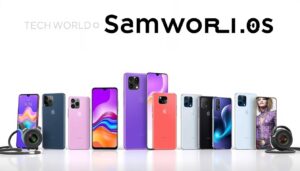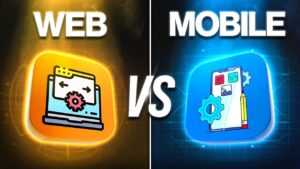
5g vs 4g
5G vs 4G:what you need to know before upgrading your phone by techworld0
Table of Contents
5G vs 4G: DEVICE The Next Big Promise of Progress?
Mobile networks have become a game-changer, revolutionizing the way we interact and do business, at an individual and at a global scale. 4G to 5G: What will we find when we invest in this new technology, and is it a game-changer? In this article, we will look at how taller, thicker the difference between 5G vs 4G, the advantages and disadvantages of it and its impacts on consumers or industries.
September 18, 2023 The Basis of 4G Technology
However, before we dive into 5G, it would help to know what 4G is capable of and what it isn’t. Beginning in the late 2000s, 4G technology became a game-changer for mobile communications, offering upload and download speeds that would unlock a whole range of new applications and improve user experiences. 4G supported video streaming, online gaming, and high-definition video calls with download speeds up to 1 Gbps, depending on the location.
Mobile devices became more common, and consumers took to applications like Netflix and gaming to engage their devices, driving growth in data consumption; however, as an ever-growing number of devices entered the mobile environment, 4G networks started to show their age. Users faced slower speeds during peak hours because of network congestion, indicating the need for a more reliable answer. This need for better connectivity eventually paved the way for 5G technology.
The Emergence of 5G
5G (fifth-generation wireless networks) was projected to solve many ills of 4G networks, with envisioned minimum download speeds of 10 Gbps (increasing upwards of 1 Tbps under the best circumstances)—faster internet and a complete reinvention of how we connect devices and then the information on those devices.
Key Features of 5G Technology
5G technology comes with many revolutionary features that make it, not a standard 4G upgrade:
5G vs 4G: Differences Between 5G And 4G: 1. Ultra Fast Speed Users can look forward to being able to download large files in seconds instead of waiting minutes. That makes this an important boost for HD video streaming and online gaming.
Low Latency: 5G offers very low latency (to as low as 1 millisecond), whereas 4G has an average latency of about 20-30 milliseconds. This decreased latency paves the way for new real-time applications such as remote surgery, augmented (AR) and virtual reality (VR).
Device Capacity Increase: 4G can handle thousands of devices within an area, but 5G can connect around one million devices per square kilometer. This feature is essential for the urban environment where many IoT devices are Connected at the same time.
Improved Performance: 5G networks utilize advanced technologies such as Massive MIMO (Multiple Input Multiple Output) to enhance coverage and reliability, minimizing dead zones and providing better connectivity overall.
5G is also more energy efficient than previous generations, which means it takes less power to transmit more data over greater distances. It enables up to 90% energy consumption reduction per transmitted bit, consequently fostering sustainable development of mobile technology.
- The Advantages of 5G Over 4G
- The differences between 5G and 4G are more than speed, they need be a game changer in technology.
- Transforming Industries
Transformation of Healthcare: Healthcare has the potential to be quickly improved by the appropriate application of 5G. But telemedicine will benefit significantly from low-latency connections that allow transmission of real-time data, as well as the ability to remotely monitor patients. Surgeons could operate from afar using robotic systems manipulated over ultra-fast connections, saving lives in dire situations.
Smart Cities and Infrastructure: Urban centers are embracing smart technologies to improve efficiency and quality of life. 5G’s ability to connect a multitude of devices makes smart traffic management systems that optimize flow in real-time based on data possible, reducing congestion and emissions.
Vehicle Automation: The rise of autonomous vehicles is set to revolutionize the transportation industry. If you have vehicles that perform that need to communicate quickly between the car, infrastructure, and cloud services to operate safely and efficiently. This technology is ripe for the low latency and high reliability provided by 5G.
Entertainment: With download speeds increasing, streaming services will also get a boost with viewers finally being able to experience their high-definition content without the dreaded buffering. The Applications of 5G–Due to the speedy transfer rate, AR and virtual reality will become a lot more realistic and helpful for video games and digital activity.
Consumer Benefits
For regular consumers, the jump from 4G to 5G has several benefits:
Seamless Connectivity with more robust networks, users will notice that fewer calls drop and have an overall better connection quality.
More Performing Mobile Experiences: Applications that are dependent on high-speed data transfer will have a more streamlined performance, enhancing the user experience across the devices.
OPTIMIZING TECHNOLOGY USE: With the trend of IoT devices hitting the market, consumers will need access to a stable 5G network to leverage up-and-coming tech advances.
Challenges Ahead
While 5G tech has much to offer, concerns are still out there about the 5G rollout. Some challenges include:
Infrastructure Limitations
Telecoms and governments alike have to invest significantly in the infrastructure required for widespread 5G coverage. Existing 4G networks may continue to serve many regions, however, which will keep access unequal.
Security Concerns
Increased connection is tightly coupled to increased security risk. Cybersecurity specialists warn that the more connected the devices, the more potential access points for cyberattacks. This will require a strong focus on network security as adoption grows.
4G vs 5G means, Many consumers might not yet fully grasp the benefits or implications of moving from 4G to 5G at all, so they could be somewhat reluctant to adopt any new technology or device purposefully designed for the new network.
Is It Overhyped?
Experts and consumer alike disagree on whether the hype machine is ramped up with respect to the improvement of 4G to 5G. The advancements in terms of speed and connectivity, however, could well be unappreciated among average users and require their engagement with applications explicitly powered by 5G technology.
In addition, despite the technology itself being groundbreaking on paper, some critics warn that real-world implementation may outpace expectations.
Conclusion
In summary, 5G vs 4G in terms of debate mirrors the debate over technology versus features. It’s hard to deny that with 5G offers transformative potential for much higher speed connections with low latency, more devices, more reliability, and will enable greater delights (and/or more productive bondages) to come, but which won’ be worth a cent without all of this implementation and adoption work.
It is important for both consumers and businesses alike to stay tuned in with what is happening in the mobile technology space as we enter this new age of connection. Shifting from 4G to 5G promises the kind of progress that could change the face of the digital landscape we know in ways we’re only starting to dream of.
FAQs
Differences between 5G and 4G?
The key differences are speed (5G is much faster), latency (lower in 5G), capacity for connected devices (much larger in 5G) and energy efficiency.
Do I need a new phone for 5G?
Your device will need to support 5G technology to fully utilise its capabilities.
Is 5G available everywhere?
No, although many metropolitan regions have 5G availability, rural areas could find themselves utilizing already outdated networks until their infrastructure catches up.
Which industries will see the biggest advantages from 5G?
Several industries such as healthcare (telemedicine), automotive (autonomous vehicles), entertainment (streaming), and smart city initiatives are predicted to be major beneficiaries of the advancements brought about by 5g technology.
Are there any risks of using 5G?
Safety concerns have been voiced because of increased connectivity; however, procedures are in place to improve security in these networks.
These features of the ongoing transition from the current 4g to the future5g makes consumers better equipped to handle a 5gConvergedFuture where connectivity plays an increasingly relevant part of their lives. As we embark on this transformational journey, understanding 5g will enable both individuals and companies to maximize the advantages it can deliver.





